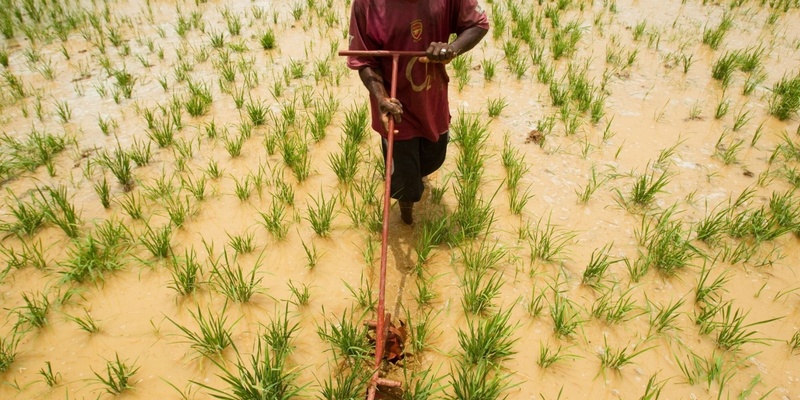Improving phytosanitary capacity of developing countries through IPPC China project
Posted on Wed, 10 Nov 2021, 15:06

©FAO/Olivier Asselin
Rome, 29 October 2021. The Secretariat of the International Plant Protection Convention (IPPC) organized two virtual technical workshops to help developing countries improve their phytosanitary capacity. The workshops were organized under the IPPC-China project entitled “Strengthening the capacity of developing contracting parties to implement the IPPC and International Standards for Phytosanitary Measures (ISPMs) under FAO-China South-South Cooperation Programme.”
The first workshop took place from 25 to 29 October 2021 with the active participation of attendees from over 20 countries from five regions, including Africa, Asia and the Pacific, Europe and Central Asia, Latin America, and Near East and North Africa. The workshop was organized with the support of the FAO’s Plant Production and Protection (NSP), the South-South and Triangular Cooperation (PST) divisions, the Ministry of Agriculture and Rural Affairs (MARA) of China and its Center of International Cooperation Service, the General Administration of Customs of China, the Chinese Academy of Agricultural Sciences, and the National Agricultural Technology Extension and Service Center. The second workshop is scheduled in February 2022.
During his opening remarks, Jingyuan Xia, Director of the FAO NSP Division and IPPC Secretary presented the major activities that the IPPC Secretariat will implement through the IPPC-China project under the FAO-China South-South Cooperation Programme. Xia also emphasized that the major objectives of the workshop were to promote bilateral and regional cooperation on phytosanitary issues and share information on the latest technology and products.
Anping Ye, Director of the FAO PST Division, also provided welcoming remarks and emphasized the importance of protecting plants and plant products from pests and diseases to help achieve food security. He pointed out that many developing countries do not have the capacity to prevent the spread of pests and diseases, and that FAO and the IPPC Secretariat can make a difference by helping them enhance their phytosanitary capacity through mobilizing financial and technical resources under the South-South and Triangular Cooperation framework. Ye also acknowledged China for having donated USD 130 million to the FAO-China South-South cooperation programme since 2009. Through numerous national projects, thousands of farmers have improved their farming technology and living conditions.
Developing countries are the majority of IPPC contracting parties, stressed Jianmin Xie, Counsel of MARA, China. During his welcoming remarks, the Counsel emphasized that China has sent thousands of plant protection experts to nearly 40 developing countries in Africa, Asia, Latin America, the Caribbean, and the Pacific region to help improve their phytosanitary capacities. He noted that thousands of officials and experts from over 80 countries attended these trainings and study tours in China. He further emphasized the importance that these virtual workshops play in sharing knowledge of phytosanitary measures and experiences in plant protection with participants from developing countries.
During the workshop, presentations were delivered on the IPPC-China project, agriculture development and perspectives in China, plant quarantine and plant protection in China. In addition, key technology for domestic plant quarantine and for plant quarantine at borders, and perspectives of the Chinese agri-tech extension system were shared. The workshop also showcased new products and technologies for plant quarantine and plant protection.
These included the digital agricultural production system, the application of aviation plant protection and plant growth regulators, semiochemical and green agriculture, and the application of pest monitoring, early warning and green biological control systems. Case studies and best practices on pest control were also provided, including the use of mighty wasps and fruit fly bait.
Presenters engaged with participants by answering their questions and appreciated the opportunity to learn more about new technologies and experiences in plant protection and quarantine. Some members expressed their interest in improving their national phytosanitary systems by conducting a Phytosanitary Capacity Evaluation and by joining the IPPC ePhyto solution. At the end of the workshop, the participants received their certificates during the virtual closing ceremony.

